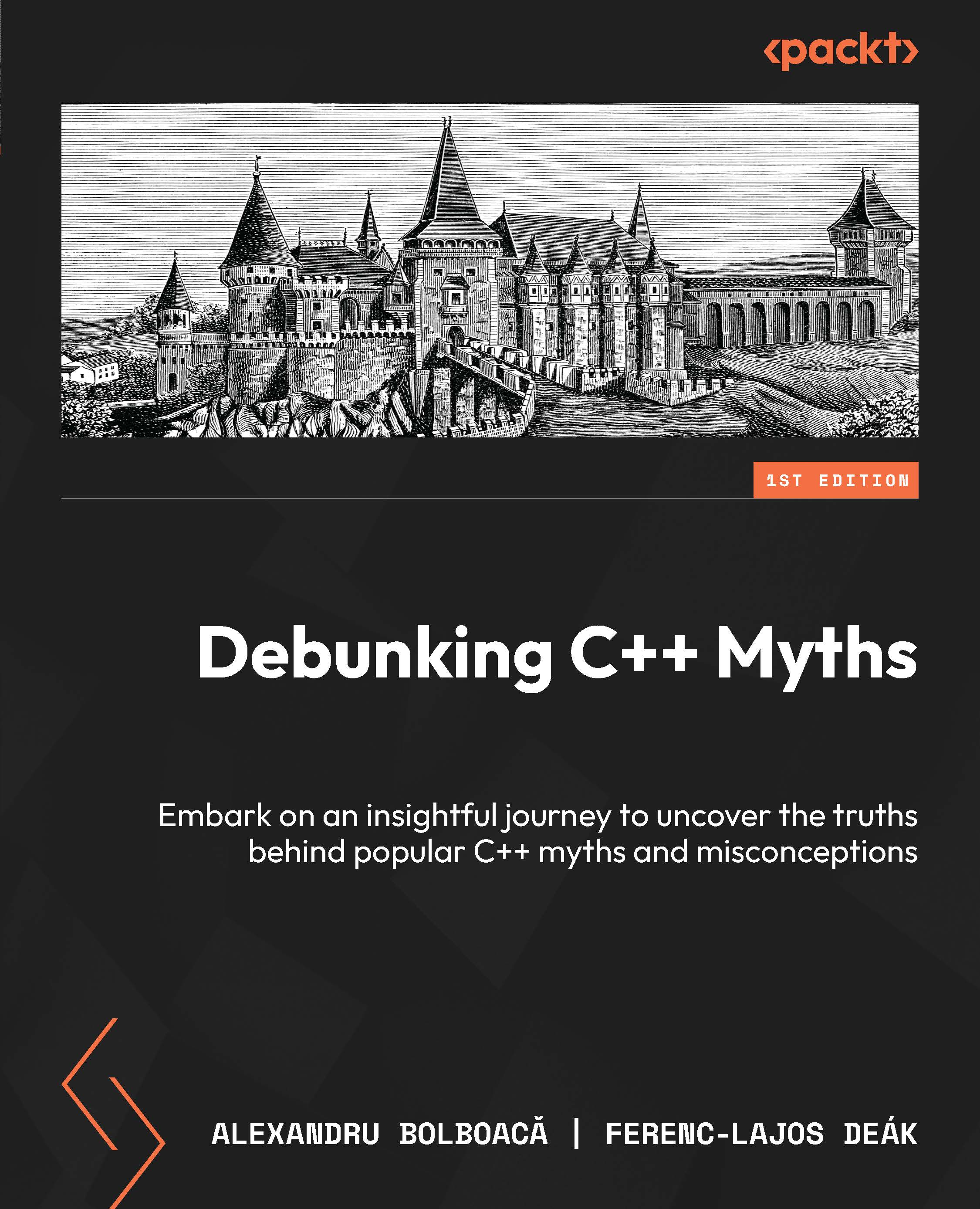We need operators when performing any operation in a programming language. JavaScript also has arithmetic, assignment, comparison, logical, bitwise, and unary operators, among others. Let's take a look at these:
var num = 0; // {1}
num = num + 2;
num = num * 3;
num = num / 2;
num++;
num--;
num += 1; // {2}
num -= 2;
num *= 3;
num /= 2;
num %= 3;
console.log('num == 1 : ' + (num == 1)); // {3}
console.log('num === 1 : ' + (num === 1));
console.log('num != 1 : ' + (num != 1));
console.log('num > 1 : ' + (num > 1));
console.log('num < 1 : ' + (num < 1));
console.log('num >= 1 : ' + (num >= 1));
console.log('num <= 1 : ' + (num <= 1));
console.log('true && false : ' + (true && false)); // {4}
console.log('true || false : ' + (true || false));
console.log('!true : ' + (!true));
In line {1}, we have the arithmetic operators. In the following table, we have the operators and their descriptions:
|
Arithmetic operator
|
Description
|
|
+
|
Addition
|
|
-
|
Subtraction
|
|
*
|
Multiplication
|
|
/
|
Division
|
|
%
|
Modulus (remainder of a division operation)
|
|
++
|
Increment
|
|
--
|
Decrement
|
In line {2}, we have the assignment operators. In the following table, we have the operators and their descriptions:
|
Assignment operator
|
Description
|
|
=
|
Assignment
|
|
+=
|
Addition assignment (x += y) == (x = x + y)
|
|
-=
|
Subtraction assignment (x -= y) == (x = x - y)
|
|
*=
|
Multiplication assignment (x *= y) == (x = x * y)
|
|
/=
|
Division assignment (x /= y) == (x = x / y)
|
|
%=
|
Remainder assignment (x %= y) == (x = x % y)
|
In line {3}, we have the comparison operators. In the following table, we have the operators and their descriptions:
|
Comparison operator
|
Description
|
|
==
|
Equal to
|
|
===
|
Equal to (both value and object type)
|
|
!=
|
Not equal to
|
|
>
|
Greater than
|
|
>=
|
Greater than or equal to
|
|
<
|
Less than
|
|
<=
|
Less than or equal to
|
Finally, in line {4}, we have the logical operators. In the following table, we have the operators and their descriptions:
|
Logical operator
|
Description
|
|
&&
|
And
|
|
||
|
Or
|
|
!
|
Not
|
JavaScript also supports bitwise operators, which are shown as follows:
console.log('5 & 1:', (5 & 1));
console.log('5 | 1:', (5 | 1));
console.log('~ 5:', (~5));
console.log('5 ^ 1:', (5 ^ 1));
console.log('5 << 1:', (5 << 1));
console.log('5 >> 1:', (5 >> 1));
The following table contains a more detailed description of the bitwise operators:
|
Bitwise operator
|
Description
|
|
&
|
And
|
|
|
|
Or
|
|
~
|
Not
|
|
^
|
Xor
|
|
<<
|
Left shift
|
|
>>
|
Right shift
|
The typeof operator returns the type of the variable or expression. For example, have a look at the following code:
console.log('typeof num:', typeof num);
console.log('typeof Packt:', typeof 'Packt');
console.log('typeof true:', typeof true);
console.log('typeof [1,2,3]:', typeof [1,2,3]);
console.log('typeof {name:John}:', typeof {name:'John'});
The output will be as follows:
typeof num: number
typeof Packt: string
typeof true: boolean
typeof [1,2,3]: object
typeof {name:John}: object
According to the specification, there are two data types in JavaScript:
- Primitive data types: Null, undefined, string, number, boolean, and symbol
- Derived data types/objects: JavaScript objects, including functions, arrays, and regular expressions
JavaScript also supports the delete operator, which deletes a property from an object:
var myObj = {name: 'John', age: 21};
delete myObj.age;
console.log(myObj); //outputs Object {name: "John"}
In this book's algorithms, we will be using some of these operators.
 United States
United States
 Great Britain
Great Britain
 India
India
 Germany
Germany
 France
France
 Canada
Canada
 Russia
Russia
 Spain
Spain
 Brazil
Brazil
 Australia
Australia
 Singapore
Singapore
 Hungary
Hungary
 Ukraine
Ukraine
 Luxembourg
Luxembourg
 Estonia
Estonia
 Lithuania
Lithuania
 South Korea
South Korea
 Turkey
Turkey
 Switzerland
Switzerland
 Colombia
Colombia
 Taiwan
Taiwan
 Chile
Chile
 Norway
Norway
 Ecuador
Ecuador
 Indonesia
Indonesia
 New Zealand
New Zealand
 Cyprus
Cyprus
 Denmark
Denmark
 Finland
Finland
 Poland
Poland
 Malta
Malta
 Czechia
Czechia
 Austria
Austria
 Sweden
Sweden
 Italy
Italy
 Egypt
Egypt
 Belgium
Belgium
 Portugal
Portugal
 Slovenia
Slovenia
 Ireland
Ireland
 Romania
Romania
 Greece
Greece
 Argentina
Argentina
 Netherlands
Netherlands
 Bulgaria
Bulgaria
 Latvia
Latvia
 South Africa
South Africa
 Malaysia
Malaysia
 Japan
Japan
 Slovakia
Slovakia
 Philippines
Philippines
 Mexico
Mexico
 Thailand
Thailand

















